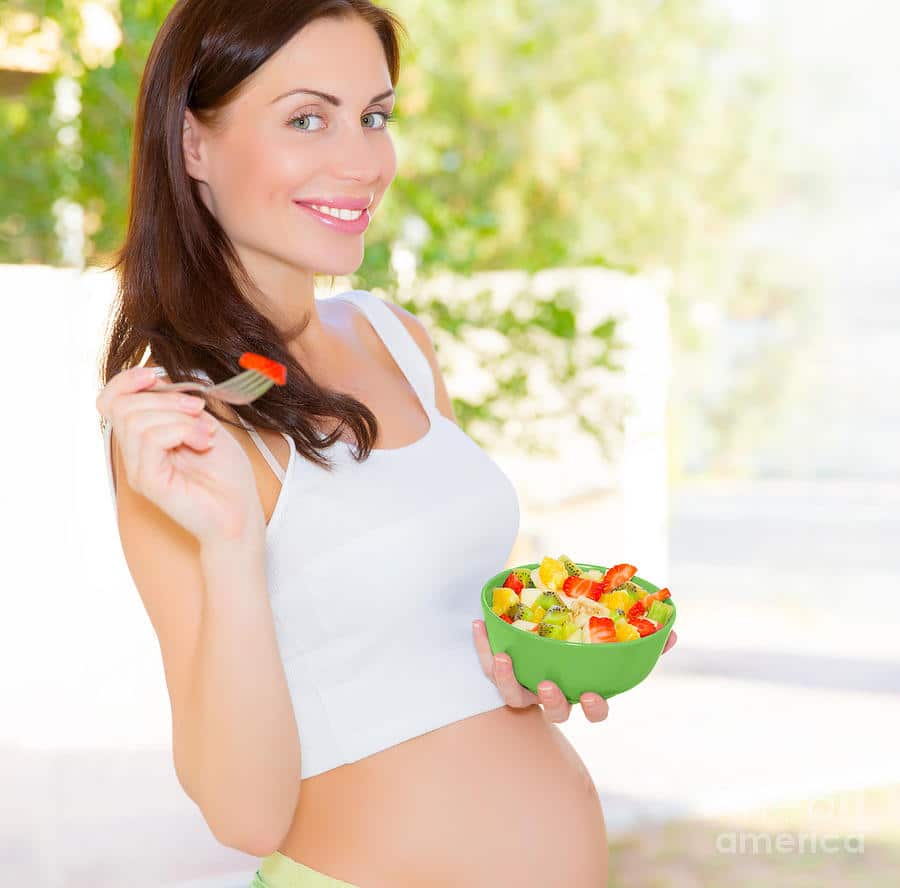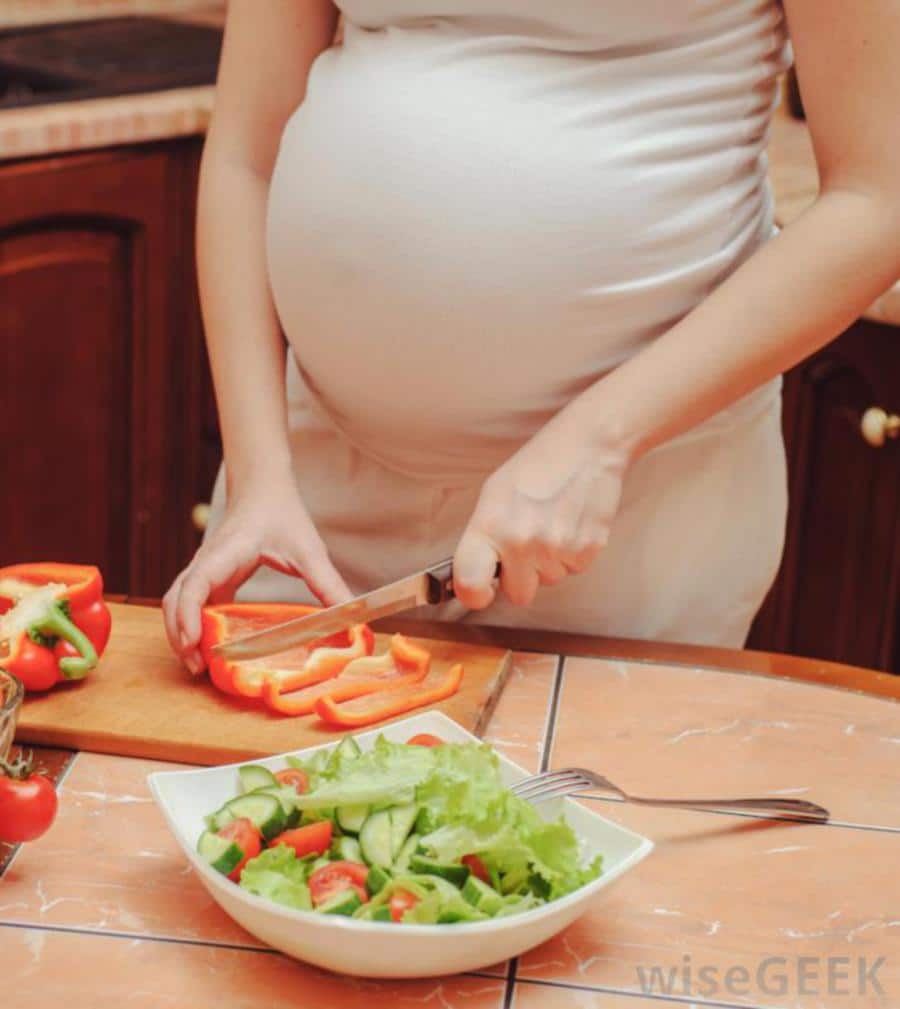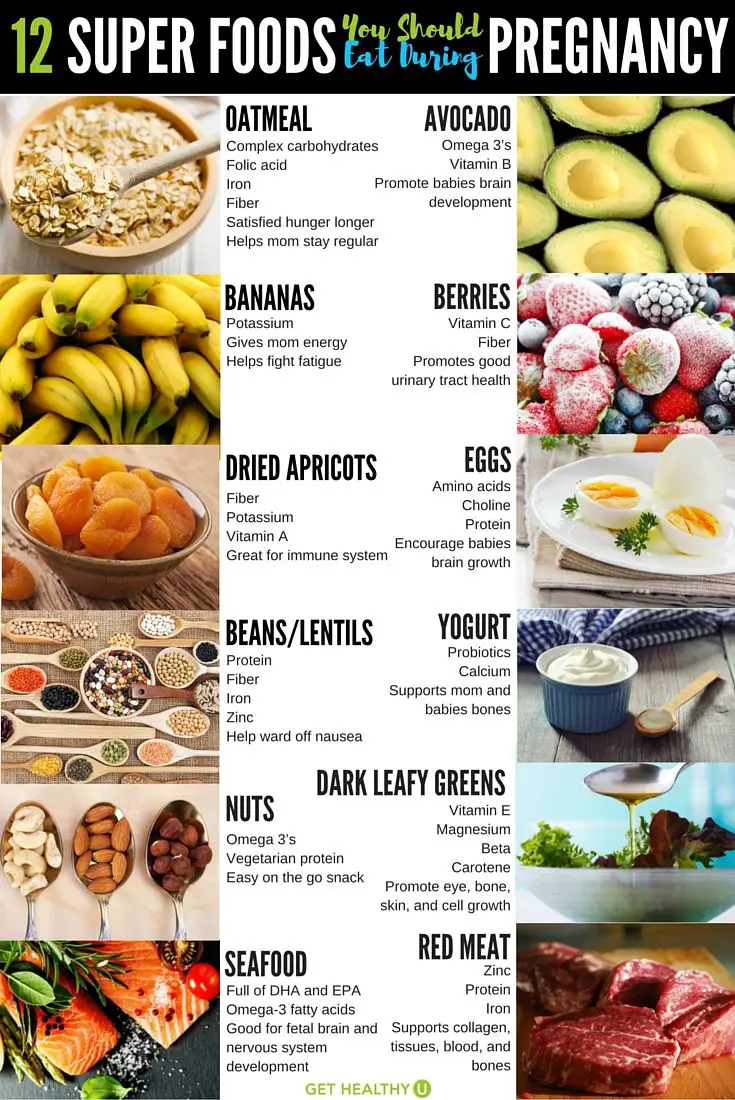What Foods And Drinks Should I Avoid
Certain foods and drinks can harm your baby if you have them while youre pregnant. Heres a list of items you should avoid.
- Alcohol. Do not drink alcohol, such as wine, beer, or hard liquor.
- Caffeine. Enjoy decaf coffee or tea, drinks not sweetened with sugar, or water with a dash of juice. Avoid diet drinks, and limit drinks with caffeine to less than 200 mg per daythe amount in about 12 ounces of coffee.3
- Fish that may have high levels of mercury . Limit white tuna to 6 ounces per week. Do not eat king mackerel, marlin, orange roughy, shark, swordfish, or tilefish. To get the helpful nutrients in fish and shellfish, you may eat up to 12 ounces of seafood per week, choosing from many safe seafood choices, such as cod, salmon, and shrimp.3
- Foods that may cause illness in you or your baby . Avoid soft cheeses made from unpasteurized or raw milk raw cookie dough undercooked meats, eggs, and seafood and deli salads. Take care in choosing and preparing lunch meats, egg dishes, and meat spreads. See more food safety guidelines during pregnancy.
- Anything that is not food. Some pregnant women may crave something that is not food, such as laundry starch, clay, ashes, or paint chips. This may mean that youre not getting the right amount of a nutrient. Talk to your health care professional if you crave something that isnt food. He or she can help you get the right amount of nutrients.
What Other New Habits May Help My Weight Gain
Pregnancy can create some new food, beverage, and eating concerns. Meet the needs of your body and be more comfortable with these tips. Check with your health care professional with any concerns.
- Eat breakfast every day. If you feel sick to your stomach in the morning, try dry whole-wheat toast or whole-grain crackers when you first wake up. Eat them even before you get out of bed. Eat the rest of your breakfast later in the morning.
- Eat high-fiber foods. Eating high-fiber foods, drinking water, and getting daily physical activity may help prevent constipation. Try to eat whole-grain cereals, brown rice, vegetables, fruits, and beans.
- If you have heartburn, eat small meals spread throughout the day. Try to eat slowly and avoid spicy and fatty foods . Have drinks between meals instead of with meals. Dont lie down soon after eating.
What Eating Well Means
- eating more healthy foods containing folic acid, iron and iodine
- limiting intake of high fat and high sugar foods
- taking vitamin supplements containing vitamin D
- drinking lots of fluids but only small amounts of caffeine
- not drinking alcohol at all
- taking care how you prepare and store food
Also Check: How To Stop Feeling Nauseous When Pregnant
What You Can Eat
- pasteurised or unpasteurised hard cheeses, such as cheddar, Gruyere and parmesan
- pasteurised semi-hard cheeses, such as Edam and Stilton
- pasteurised soft cheeses, such as cottage cheese, mozzarella, feta, cream cheese, paneer, ricotta, halloumi, goats’ cheese without a white coating on the outside and processed cheese spreads
- soft or blue cheese that has been cooked until steaming hot
- pasteurised milk, yoghurt, cream and ice cream
The Healthybaby Guide For An Optimally Healthy Pregnancy

Key Points:
- Preconception + prenatal care focuses on womens and mens health to increase the chance of having a healthy pregnancy and baby. You can make lifestyle choices that have a huge impact on your babys health.
- When preparing for pregnancy and during pregnancy, focus on taking a comprehensive prenatal supplement, reducing toxic exposures and stress, and eating a clean and complete diet to support the overall health of you and your baby
- Pregnancy can deplete the bodys nutritional stores while also increasing nutritional demands. You need a natural source of vitamins, minerals, and other nutrients to create the healthiest environment possible for your baby.
- While avoiding all toxic exposures is hard in our modern world, there are strategies that can help reduce everyday chemical exposures.
- Supplementing with a prenatal regimen helps to ensure that you and your baby are fully supported as you grow together. We formulated our prenatal supplement using evidence-based recommendations for the optimal level of each vitamin and mineral.
- Regular exercise and prioritizing your mental health can go a long way toward improving the health of your pregnancy.
Whether youre thinking about getting pregnant, actively trying, or already pregnant, there are essentials steps you can take to have the healthiest pregnancy possible. Wherever you are in your journey, start now!
Also Check: Is It Possible To Get Pregnant With Irregular Periods
What To Eat While Pregnant: Food Guide And Cheat Sheet
From tuna and soft cheeses to caffeine and deli meats, here’s exactly what’s safe to eat and what you need to eat while you’re pregnant.
Pregnancy comes with a lot of confusing dos and dontsespecially when it comes to food. Suddenly, youre anxiously reading labels and googling ingredients at the grocery store and at restaurants. Does this fish contain too much mercury? How much coffee can I haveor should I just switch to decaf? Is all pasteurized cheese safe? While some pregnancy food rules are cut and dry, others arent, and all this adviceand sometimes-conflicting informationcan really depend on who you ask. So heres what you need to know.
Pregnancy Diet Misconceptions And Weight Gain During Pregnancy
“Weight gain during pregnancy often has an ebb and a flow over the nine months,” Krieger said. It’s hard to measure where pregnancy weight is going, she said, adding that a scale does not reveal whether the extra pounds are going to a woman’s body fat, baby weight or fluid gains.
When it comes to pregnancy weight gain, Krieger advises mothers-to-be to look at the big picture: During regular prenatal checkups, focus on the fact that the baby is growing normally rather than worrying about the number on a scale.
The total number of calories that are needed per day during pregnancy depends on a woman’s height, her weight before becoming pregnant, and how active she is on a daily basis. In general, underweight women need more calories during pregnancy overweight and obese women need fewer of them.
The Institute of Medicine guidelines for total weight gain during a full-term pregnancy recommend that:
- Underweight women, who have a body mass index below 18.5, should gain 28 to 40 lbs. .
- Normal-weight women, who have a BMI of 18.5 to 24.9, should gain 25 to 35 lbs. .
- Overweight women, who have a BMI of 25.0 to 29.9, should gain 15 to 25 lbs. .
- Obese women, who have a BMI of 30.0 and above, should gain 11 to 20 lbs. .
Rate of weight gain
Twins
The IOM guidelines for pregnancy weight gain when a woman is having twins are as follows:
- Underweight: 50 to 62 lbs.
- Normal weight: 37 to 54 lbs.
- Overweight: 31 to 50 lbs.
- Obese: 25 to 42 lbs.
Also Check: How Does Smoking Cigarettes Affect Pregnancy
What To Eat When Pregnant And Don’t Feel Well
During pregnancy you may have morning sickness, diarrhea, or constipation. You may find it hard to keep foods down, or you may feel too sick to even eat at all. Here are some suggestions:
- Morning sickness: Eat crackers, cereal, or pretzels before getting out of bed eat small, frequent meals throughout the day avoid fatty, fried, spicy, and greasy foods.
- Constipation: Eat more fresh fruit and vegetables. Also, drink 6 to 8 glasses of water a day. Taking fiber supplements may also help. Check with your doctor first.
- Diarrhea: Eat more foods that contain pectin and gums to help absorb excess water. Examples of these foods are applesauce, bananas, white rice, oatmeal, and refined wheat bread.
- Heartburn: Eat small, frequent meals throughout the day try drinking milk before eating and limit caffeinated foods and beverages, citric beverages, and spicy foods.
Tips For Nourishing Your Growing Baby
Congratulations on your pregnancy! With all of the excitement comes a lot of questions, a common one being: What do I eat?
It is important to follow a healthy diet at any time in your life, but its especially necessary during pregnancy. A balanced diet will help your baby to grow, develop and maintain a healthy weight.
Read on for our tips on how to shift your diet to accommodate and nurture your new family member.
You May Like: What Helps With Back Pain In Pregnancy
Is It Safe To Have Beans During Pregnancy
Beans including legumes like lentils, peas, and peanuts are a good source of protein and an excellent source of iron, folate, potassium, and magnesium. Theyre all important when youre pregnant. Beans are also a great food for fiber, which can help prevent and relieve two common pregnancy discomforts: constipation and hemorrhoids.
Foods To Avoid When Pregnant
6-minute read
There are some foods you should not eat when you’re pregnant because they might make you ill or harm your baby. Make sure you know the important facts about which foods you should avoid or take extra care with when you’re pregnant. The best foods to eat are freshly cooked or freshly prepared food.
You May Like: What To Expect At 31 Weeks Pregnant
Why Is Gaining A Healthy Amount Of Weight During Pregnancy Important
Gaining an appropriate amount of weight during pregnancy helps your baby grow to a healthy size. But gaining too much or too little weight may lead to serious health problems for you and your baby.
According to experts, gaining too much weight during pregnancy raises your chances for developing gestational diabetes and high blood pressure during pregnancy. It also increases your risk for type 2 diabetes and high blood pressure later in life. If youre overweight or have obesity when you get pregnant, your chances for health problems may be even higher. You could also be more likely to have a cesarean section .
Gaining a healthy amount of weight helps you have an easier pregnancy and delivery. It may also help make it easier for you to get back to a healthy weight after delivery. Research shows that recommended amounts of weight gain during pregnancy can also lower the chances that you or your child will have obesity and weight-related problems later in life.
Can I Eat Ice Cream While Pregnant

While pregnant women should avoid homemade ice cream , store-bought ice cream is generally safe. You may have read about a few listeriosis outbreaks linked to improperly sanitized soft-serve machines, but the risk is extremely low, and it doesnt mean you have to avoid this common pregnancy craving altogether.
Read more:
You May Like: Is It Safe To Eat Tums While Pregnant
Unpasteurized Foods And Raw Meat
According to the USDA, pregnant women are at high risk of getting sick from two different types of food poisoning: listeriosis, caused by the Listeria bacteria, and toxoplasmosis, an infection caused by the Toxoplasma gondii parasite.
Listeriosis is about 20 times more common in pregnant women than in the rest of the population, according to a study published in the journal Reviews in Obstetrics and Gynecology. The CDC says that Listeria infection may cause miscarriage, stillbirth, pre-term labor, and illness or death in newborns.
To avoid listeriosis, the USDA recommends avoiding the following foods during pregnancy:
- Unpasteurized milk and foods made from it, such as feta, Brie, Camembert, blue-veined cheeses, queso blanco and queso fresco. Pasteurization involves heating a product to a high temperature to kill harmful bacteria.
- Hot dogs, luncheon meats and cold cuts, unless heated to steaming hot before eating to kill any bacteria.
- Store-bought deli salads, such as ham salad, chicken salad, tuna salad and seafood salad.
- Unpasteurized refrigerated meat spreads or pâtés.
What Fish Are Safe To Eat During Pregnancy
Recently, medical experts have noticed that some pregnant women have become overcautious when it comes to fish, steering clear of one of the foods they might need the most. Expectant mothers have long been cautioned about fetal exposure to mercury in fish. But after a US Food and Drug Administration analysis of 1,000 pregnant women showed that 21 percent had not eaten fish at all in the previous month, the FDA released a draft of updated guidelines in June to encourage women who are trying to conceive, are pregnant or are breastfeeding to eat more fishbetween eight and 12 ounces per week. Health Canada simply recommends all women who could become pregnant, are pregnant or are breastfeeding consume a minimum of 150 grams, or two servings, of cooked fish per week. 4 reasons to kick excess sugar from your pregnancy diet
You May Like: How Do I Tell How Many Weeks Pregnant I Am
When To Call Your Doctor
If youre still unsure if something is safe to eat during pregnancy, ask your doctor.
There are lots of rules and suggestions youll hear during your 40 weeks of pregnancy. The advice you followed during one pregnancy could have changed by the next.
And if youre concerned that you might have come into contact with listeria or have symptoms of foodborne illness, contact your doctor. It never hurts to have a quick checkup to make sure you and your baby are healthy.
What Are Steps You Can Take Toward A Healthy Pregnancy
Folic Acid: Folic acid is a B vitamin that can help prevent major birth defects. Take a vitamin with 400 micrograms of folic acid every day, before and during pregnancy.
Smoking: The best time to quit smoking is before you get pregnant, but quitting at any time during pregnancy can help your baby get a better start on life. Learn more about the dangers of smoking and find help to quit.
Alcohol: A baby can be exposed to the same level of alcohol as the mother during pregnancy. There is no known safe amount of alcohol use during pregnancy.
: Marijuana use during pregnancy can be harmful to your babys health. The chemicals in marijuana pass through your system to your baby and can harm your babys development.
Vaccinations: Did you know a baby gets disease immunity from mom during pregnancy? This immunity can protect baby from some diseases during the first few months of life, but immunity decreases over time.
Infections: You wont always know if you have an infectionsometimes you wont even feel sick. Learn how to help prevent infections that could harm your developing baby.
HIV: If you are pregnant or are thinking about becoming pregnant, get a test for HIV as soon as possible and encourage your partner to get tested as well. If you have HIV and you are pregnant, there is a lot you can do to keep yourself healthy and not give HIV to your baby.
West Nile Virus: Take steps to reduce your risk for West Nile virus and other mosquito-borne infections.
Read Also: What To Buy When You Find Out You Re Pregnant
Are You Really Eating For Two
When people say that a pregnant woman is “eating for two,” it doesn’t mean she needs to consume twice as much food or double her calories.
“A woman is not eating for two during her first trimester,” Krieger said. During the first three months, Krieger tells women that their calorie needs are basically the same as they were before pregnancy.
Krieger typically advises pregnant women to add 200 calories to their usual dietary intake during the second trimester, and to add 300 calories during their third trimester when the baby is growing quickly.
Foods That Are High In Fat Sugar Or Both
Sugary foods and drinks are often high in calories, which can contribute to weight gain. Having sugary foods and drinks can also lead to tooth decay.
Fat is very high in calories, so eating too many fatty foods, or eating them too often, can make you put on weight. Eating too much saturated fat can also increase the amount of cholesterol in your blood, which increases your chance of developing heart disease.
Foods that are high in fat, sugar, or both, include:
- all spreading fats
If you’re having foods and drinks that are high in fat and sugar, have these less often and in small amounts.
Try to cut down on saturated fat, and have small amounts of foods rich in unsaturated fat instead, such as vegetable oils. Find out about saturated and unsaturated fat.
Also Check: How Do You Get Yourself Pregnant
Nutritious Fruits You Should Eat During Pregnancy
If youre pregnant, you might be craving something sugary. But try not to make a habit of reaching for a piece of cake or a candy bar to satisfy that sweet tooth. Fruit is the perfect solution.
It offers the sweetness you crave and the nutrition you need. Enjoy these fruits as part of a healthy pregnancy diet in salads, in smoothies, over yogurt, or as a snack anytime.
Nutrient Needs During Pregnancy

A person needs more water- and fat-soluble vitamins during pregnancy and lactation. This includes folate, choline, and vitamins B12, A, and D, among others.
Doctors
To help prevent illnesses and other complications during a pregnancy, avoid:
- Seafood that contains mercury: Avoid shark, swordfish, and marlin, or keep the intake to an absolute minimum.
- Uncooked or partially cooked meats: Opt for thoroughly cooked meats.
- Uncooked shellfish: This is due to a risk of bacterial or viral contamination, which can cause food poisoning.
- Raw eggs: Avoid these and any foods that contain them.
- Soft, mold-ripened cheese: Cheeses such as brie and camembert carry a risk of Listeria contamination. Listeria is a group of bacteria that can cause potentially fatal infections in pregnant people and their babies.
Also Check: Can I Get Cramps If I M Pregnant

